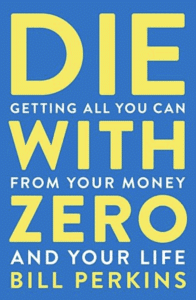I am reminded when engaging with various DIY investors that the context of the investing situation is often misunderstood. As investors, we often look at a situation through our own experiences and I share my progress on 3 different portfolios to put the strategy and decisions into a specific context.
I know it’s not easy but you need to avoid personalizing the investment and understand the context. Here are the 3 different approaches.
- Personal portfolio is about building the largest portfolio through dividend growth investing.
- Corporate portfolio is about income. Think of yourself as the CFO of a business and there is extra cash. One option is to pay dividends, which I don’t need as my personal tax is too high, and the other option is to invest it. Either back in the business, or to earn some money but there isn’t 40 years … It’s a different approach thus income. GICs and HISA fluctuate and I can’t be narrow-minded with too short of a time window.
- Leveraged portfolio is about borrowing to invest. It’s simple, I borrow money, pay interest and invest the proceeds to make money. The total return is the goal here and not the dividend income beating the interest rate. The investments have to pay a dividend towards income to deduct the taxes.
As you can see, not all decisions toward an investment are the same. There is a lot of context that comes into consideration. I hold in the corporate account and I don’t think I would ever hold it in my personal portfolio (even though I once did when I followed the herd).
My corporate income portfolio, just like many retirees, is at the mercy of the interest rates and that’s the reality and the difference between a dividend growth portfolio and a dividend income portfolio trying to achieve a 5% yield.
The reality of income investing is about the size of your portfolio. When looking into the decisions others make, try to understand their goals. I have the luxury to experiment with the corporate account to learn about the strategies that can work to avoid portfolio depletion and higher income.
Thoughts On My Bank Holdings
My thinking is to sell some RY and TD in the coming months. I am keeping NA as is. BNS is a goner once it’s back in the green, or earlier. I am watching CSU and ATD. I thought it would bounce back a little faster but it’s not the case … BNS was a greedy play just like GWO back then. GWO paid off, but BNS has not yet …
Some of my returns for context on my decision. The first group is generally the target of blue-chip dividend investors wanting to see high dividends whereas the second group is dividend growth focused on total returns.
- TRP is at 1.44% annual ROR after 13 years (I don’t have much but a reminder)
- T is at 11.74% annual ROR after 13 years (I don’t have much and it’s with Computershare investing fractional shares for every penny)
- T is at -0.54% annual ROR after 2 years (that’s the majority of T in my taxable account)
- NA is at 11.07% annual ROR after 11 years
- RY is at 8.67% annual ROR after 12 years
- TD is at 8.48% annual ROR after 11 years
Compared that with
- MSFT is at 26.10% annual ROR after 11 years
- AAPL is at 24.63% annual ROR after 9 years
- ABBV is at 17.53% annual ROR after 7 years
- ATD is at 20.16% annual ROR after 5 years
- IFC is at 14.84% annual ROR after 5 years
While October was pretty gloomy on the stock market, November did start to show some positive signs with the earning calendar in full swing. My entire portfolio is up almost 18%.
Stock Trades
I made the big decision to drop Canadian National Railway in favour of Waste Connections.
I also dropped HCAL in my wife’s TFSA in favour of WCN as well. My wife also had a bit of money in HCAL in her taxable account and sold it to buy 2 shares of Constellation Software.
It doesn’t seem like much, but my future yield in 2024 has now dropped below 2023
Portfolio Management
Discounted markets are usually an opportunity for shuffling your portfolio for the better. Some stocks are worth doubling down on, while you may need to move on from others.
My sector diversification probably doesn’t match yours. Nothing wrong with that but whatever model you have in mind, you can rethink it as I am hoping I can show you don’t need to broadly cover all sectors.
I started with all the usual Canadian blue-chip stocks in the early years of my portfolio and you can see in the portfolio details that I am no longer holding many of the usual suspects.
Dividend Income
My November 2023 dividend income is $4,428.
Here is what my dividend income has been and how I forecast future dividend income. 20.36% is the average dividend growth since 2010.
The dividend growth includes both new money, DRIP shares, and the dividend growth by the companies.
If you want high income, check out the corp account as this retirement account has a yield of 2.17% and is built to grow the value with dividend growth.
| 2010 | $3,785.87 | ||
| 2011 | $4,742.99 | $957.12 | 25.28% |
| 2012 | $5,650.70 | $907.71 | 19.14% |
| 2013 | $6,270.04 | $619.33 | 10.96% |
| 2014 | $8,108.62 | $1,838.59 | 29.32% |
| 2015 | $10,415.40 | $2,306.78 | 28.45% |
| 2016 | $12,460.67 | $2,045.27 | 19.64% |
| 2017 | $15,475.60 | $3,014.93 | 24.20% |
| 2018 | $18,757.22 | $3,281.62 | 21.21% |
| 2019 | $23,305.32 | $4,548.10 | 24.25% |
| 2020 | $28,285.82 | $4,980.50 | 21.37% |
| 2021 | $26,034.41 | -$2,251.41 | -7.96% |
| 2022 | $32,763.15 | $6,728.74 | 25.85% |
| 2023 | $40,308.12 | $7,544.97 | 23.03% |
| 2024 | $48,516.15 | $8,208.03 | 20.36% |
| 2025 | $58,395.60 | $9,879.45 | 20.36% |
| 2026 | $70,286.83 | $11,891.23 | 20.36% |
| 2027 | $84,599.50 | $14,312.66 | 20.36% |
| 2028 | $101,826.68 | $17,227.18 | 20.36% |


Why did you drop CNR for Waste Connections? Both are pretty flat this past year, but CNR is down a bit more, also offers a slightly better yield. Just curious about your rationale. Thanks!
Nothing to do with the last year. It had not been providing the return I was looking for over the past few years and decided to completely offload for what I believe can provide better total returns. WCN does grow through acquisition and I felt it’s probably easier for WCN to grow rather than CNR … The other option was WM and I may switch to WM down the line if WCN isn’t what I was expecting.
Can you explain your rational for selling CN Rail?
I found CNR slowing down on growth over the past 5 years. Based on the performance tracking I have, it wasn’t the performance I was looking for for a dividend growth stock. It did great a while back but it slowed down. I decided to switch for WCN which is still growing through acquisition. The acquisition part is what made the difference.